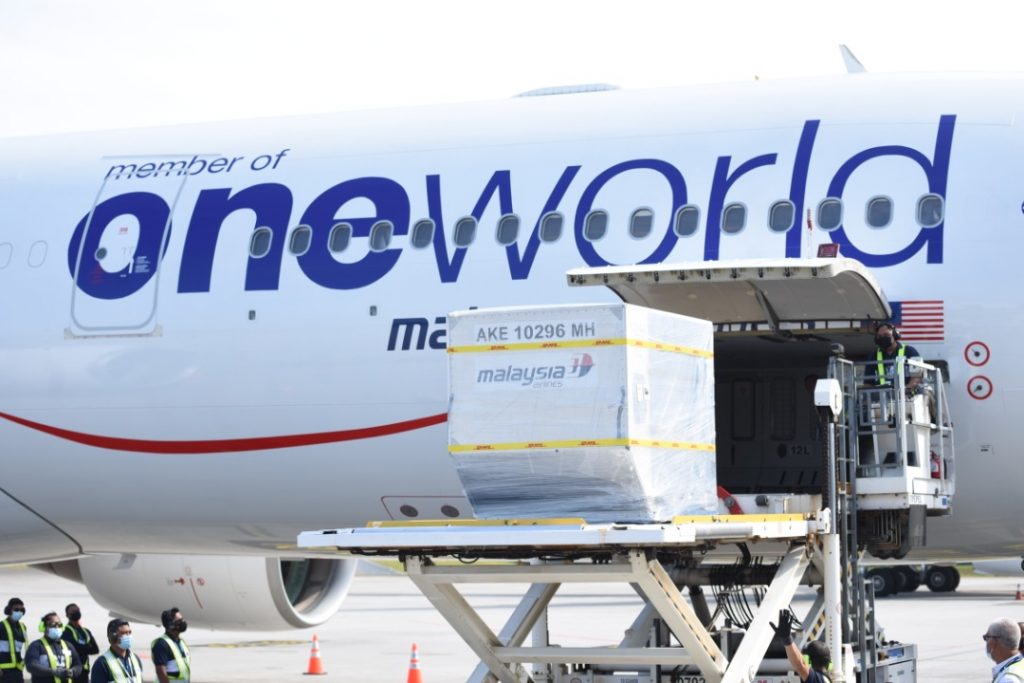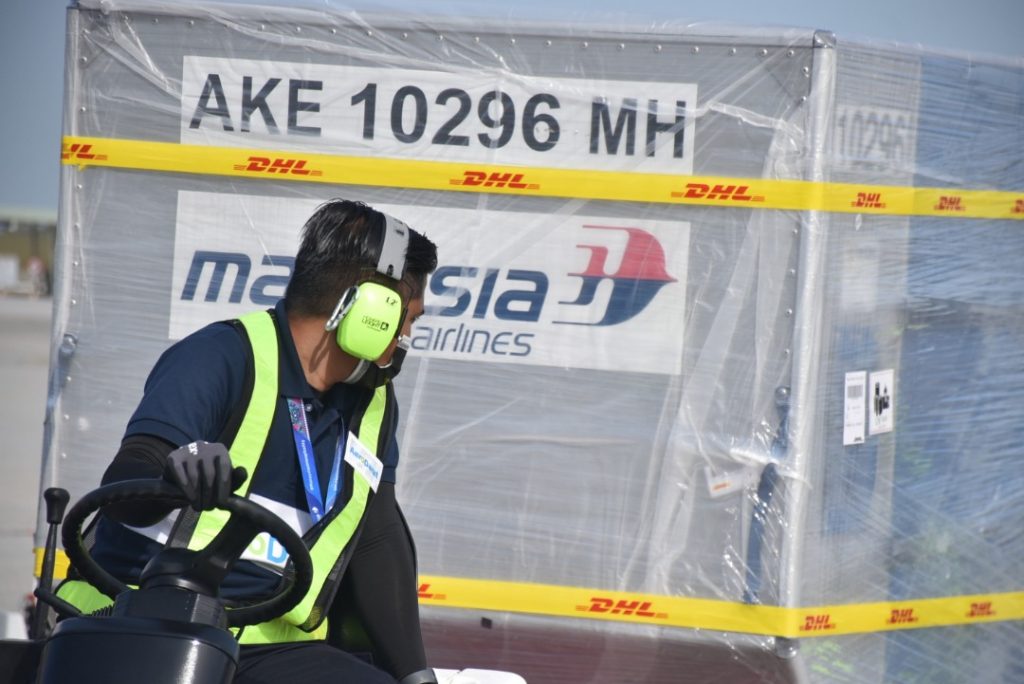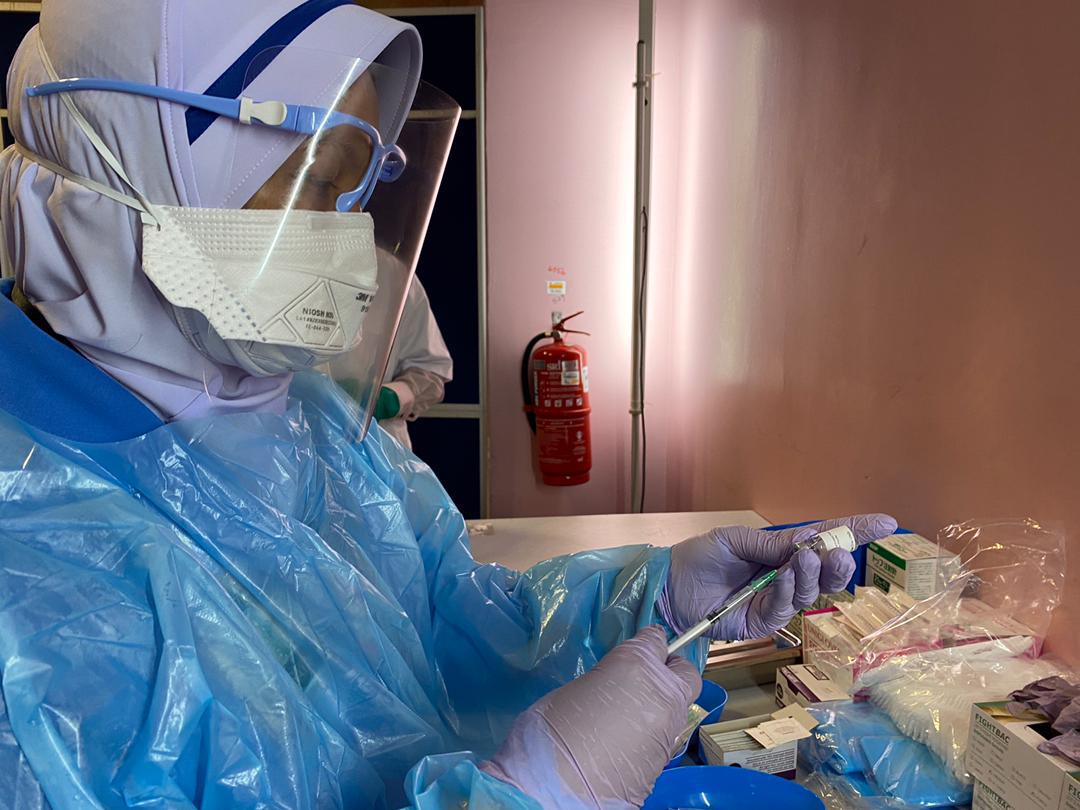KUALA LUMPUR, Feb 22 — About 69.7 per cent of health care workers across the government and private sectors said they would accept any Covid-19 vaccine, according to a CodeBlue survey.
To the question “Will you take the Covid-19 vaccine if offered to you?”, 69.7 per cent said “yes”, 19.1 per cent responded “depends on which vaccine”, 6.3 per cent replied “not sure”, and 4.9 per cent said “no”. The Pfizer-BioNTech shot was the most popular vaccine selected by respondents who were fine with getting vaccinated.
CodeBlue’s online survey, run from February 8 to 19, was taken by 829 respondents who said they were health care workers — doctors, nurses, dentists, and pharmacists among others. Nearly six out of 10 respondents worked in private clinics or hospitals, about 27 per cent worked in Ministry of Health (MOH) clinics or hospitals, 7 per cent in university hospitals, and the remaining in other medical facilities.
About 41.3 per cent of the respondents were based in the Klang Valley; the other health care workers were located in other states. About 38.6 per cent of respondents had directly dealt with or screened Covid-19 patients.
A general practitioner from Kuching, Sarawak, Dr Yao Sik Chi, agreed to take any coronavirus vaccines offered because he said the benefits of vaccination far outweigh the risks of adverse effects.
“Those Covid-19 vaccines available in Malaysia have been approved by the Ministry of Health (MOH) Malaysia based on clinical studies on their efficacy,” Dr Yao told CodeBlue.
Dr Yao also said that he has started educating his patients on getting vaccinated.
From the survey, it was also found that among those who agreed to be vaccinated, 45.5 per cent of them, across the private and government sectors, have been educated by their superiors on Covid-19 vaccination.
Among the 158 respondents who said they will take the Covid-19 vaccine but depending on which vaccine, as well as among the 578 respondents who said they will take the vaccine, a large portion of them (70 per cent) chose the Pfizer vaccine.
Meanwhile, 35.6 per cent chose the AstraZeneca vaccine, 19.4 per cent chose the Chinese Sinovac vaccine, 14 per cent chose the Russian Sputnik V vaccine, 6.7 per cent chose the Chinese CanSino vaccine, while only 18.7 per cent chose all of the above options.
An anonymous MOH dentist who spoke to CodeBlue said she picked the Pfizer and AstraZeneca vaccines because at the moment, information on these two vaccines are most available in the media compared to other shots.
“Don’t know much about other vaccines due to lack of information on the net. We human beings only want what we know. We are scared of the unknown,” the anonymous health care worker said.
She said more information on the side effects, contraindications (a condition when one should not receive vaccines), and preferably a few systematic reviews on each vaccine should be made available in simple infographics for better outreach among the public.
The first shipment of Pfizer-BioNTech’s two-dose vaccine containing 312,390 doses arrived in Malaysia yesterday. Covid-19 Immunisation Task Force (CITF) chairman Khairy Jamaluddin expects delivery of a million Pfizer doses by end March for about 500,000 frontline workers from the health sector and the non-health sector, such as the police, military, prison staff, the Fire and Rescue Department, and Social Welfare Department, among others.
Khairy has said the public, including health care workers, cannot choose which Covid-19 vaccine they want. They will be given an appointment date and place to where they should get the vaccine, but he assured the public that the vaccines will be safe.
Among the 6.3 per cent of respondents who were unsure about getting a Covid-19 vaccine, 65.4 per cent (34 people) said they are not sure if the vaccine is safe and 28.8 per cent (15 people) said they were not sure if it’s effective.
The Pfizer-BioNTech vaccine has an efficacy rate of 95 per cent, while AstraZeneca-Oxford University’s vaccine is between 62 and 90 per cent effective. Sinovac’s vaccine has an efficacy rate of between 50.4 per cent and 91.25 per cent and CanSinoBio 65.7 per cent. The Sputnik V vaccine has an efficacy rate of 91.6 per cent.
Although the government has procured vaccines from various pharmaceutical companies, the National Pharmaceutical Regulatory Agency (NPRA) has to first approve the vaccine before it can be administered to the public. So far, NPRA has given conditional registration to Pfizer and is currently reviewing clinical trial dossiers from AstraZeneca, Sinovac, and Sputnik V.
Some of the reasons given by the 5 per cent of respondents who said they will not take the vaccine include no confidence that the vaccine is safe (29 respondents), not convinced that the vaccine is effective (22 respondents), the vaccine has been developed and produced faster than the usual timeline (17 respondents), no confidence in the mRNA vaccine (14 respondents) etc.
Other reasons cited by those who said they were not sure and they will not take a Covid-19 vaccine included pregnancy, a history of allergies, and no long-term data to support the efficacy of the vaccine.

An anonymous specialist from the private sector said he will not get vaccinated against Covid-19 because the long-term effects of the vaccine are unknown, and there’s no external panel reviewing vaccine efficacy.
Each country has their own national regulatory agency board that goes through the clinical data from each pharmaceutical company before allowing a Covid-19 vaccine to be used in their country.
“I would like to say here that I am not an anti-vaxxer. I completed my immunisation schedule. However, for this, I still need more information to understand the benefits,” the anonymous health care provider told CodeBlue.
Among the 5 per cent of respondents who said they will not take the Covid-19 vaccine, more than half said they have been educated by their superiors about the vaccines.
More Info On Vaccines Needed

Although 82.9 per cent of respondents from the survey have carried out their own research on Covid-19 vaccines — majority from scientific journals, news reports, and MOH website or social media — many of the respondents still asked for more information surrounding the vaccine.
The health care workers asked for information on Covid-19 vaccine safety in breastfeeding and pregnant mothers, duration of efficacy, duration to develop immunity, and safety profile.
So far, MOH has outlined several groups of people that would require considerations before taking the vaccine, which include individuals with severe allergies, women who are pregnant and breastfeeding, individuals who have tested positive for Covid-19, and individuals with immune system issues.
The majority of those who chose to take a Covid-19 vaccine said they would recommend it to their friends and family. However, most of those who said they would not get inoculated similarly said they would not recommend their friends and family for vaccination either.
The majority of respondents to CodeBlue’s online survey were medical officers (19.9 per cent), specialists or consultants (23.8 per cent), and general practitioners (25.1 per cent). There were other health care workers, such as house officers, nurses, medical assistants, dentists, pharmacists, allied health care professionals, clinic assistants etc, who also participated in the survey.
About 37.4 per cent of respondents worked in private clinics, 26.9 per cent worked in MOH hospitals or clinics, 21.4 per cent worked in private hospitals, seven per cent in university hospitals, while the rest worked in other health related centres such as private ambulatory care centres, army hospitals, dialysis centres, pharmacies etc.








